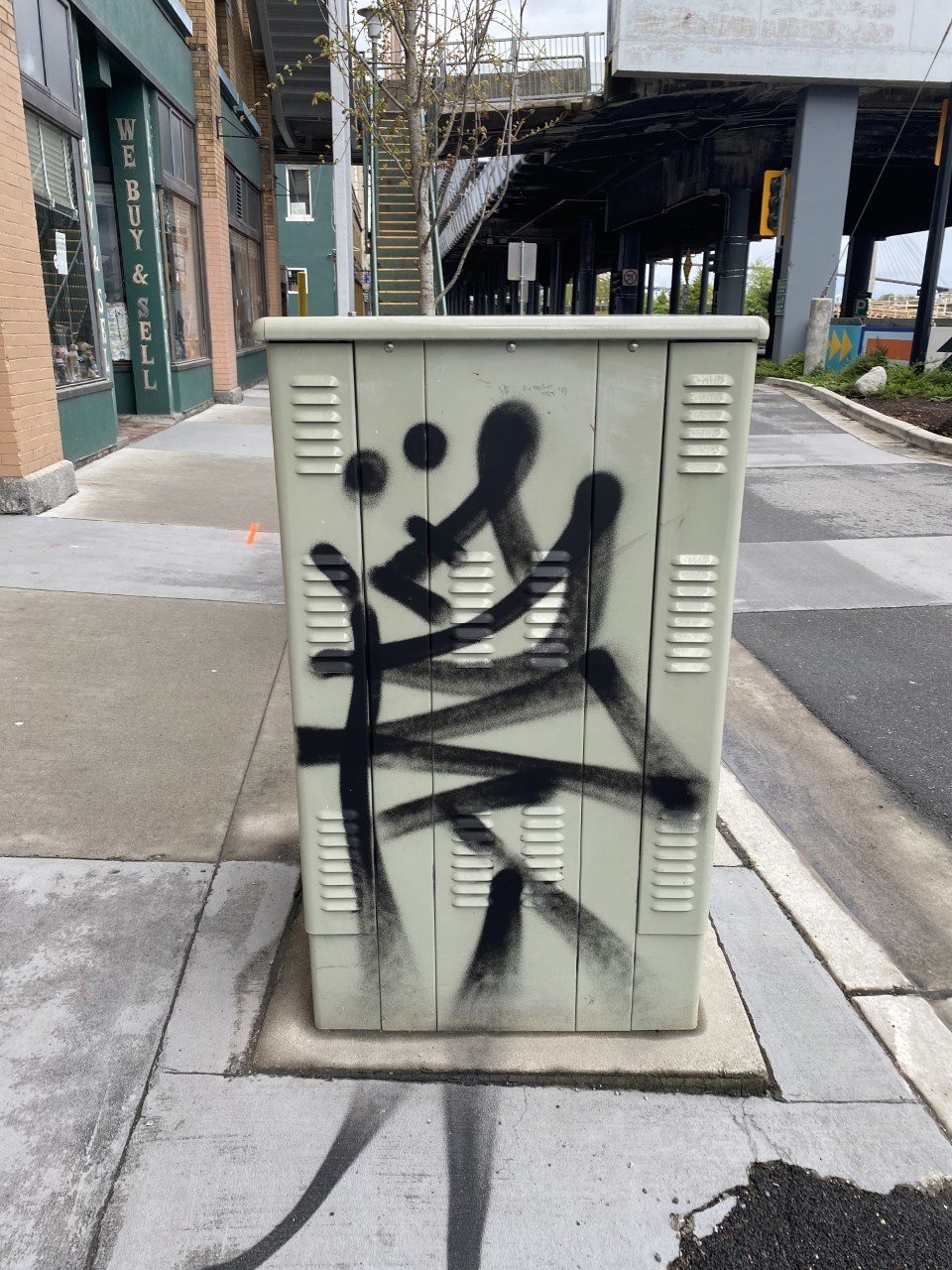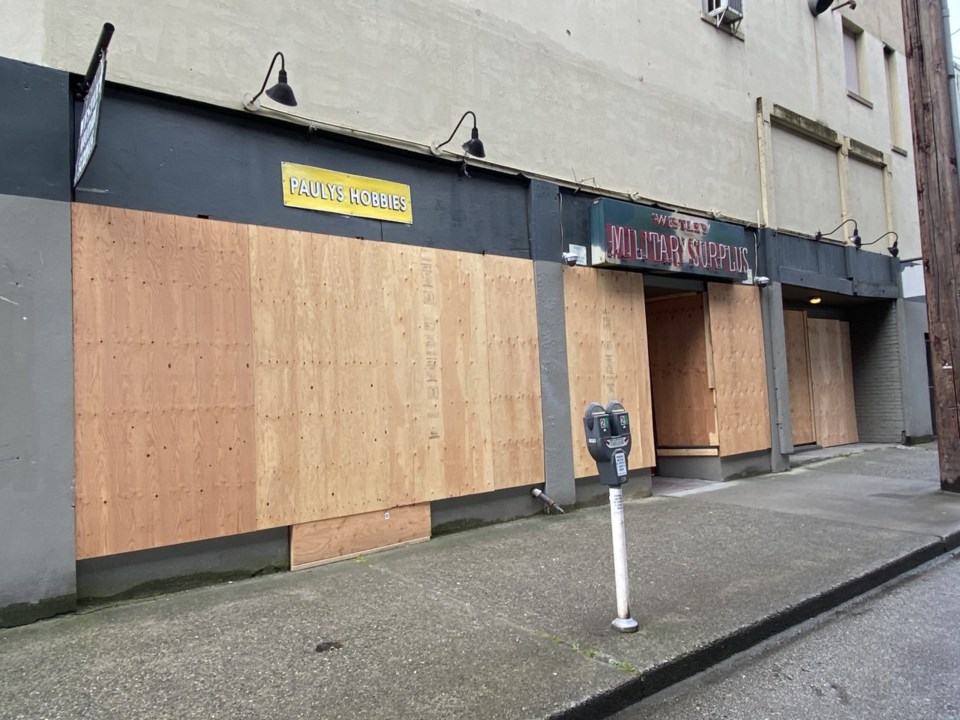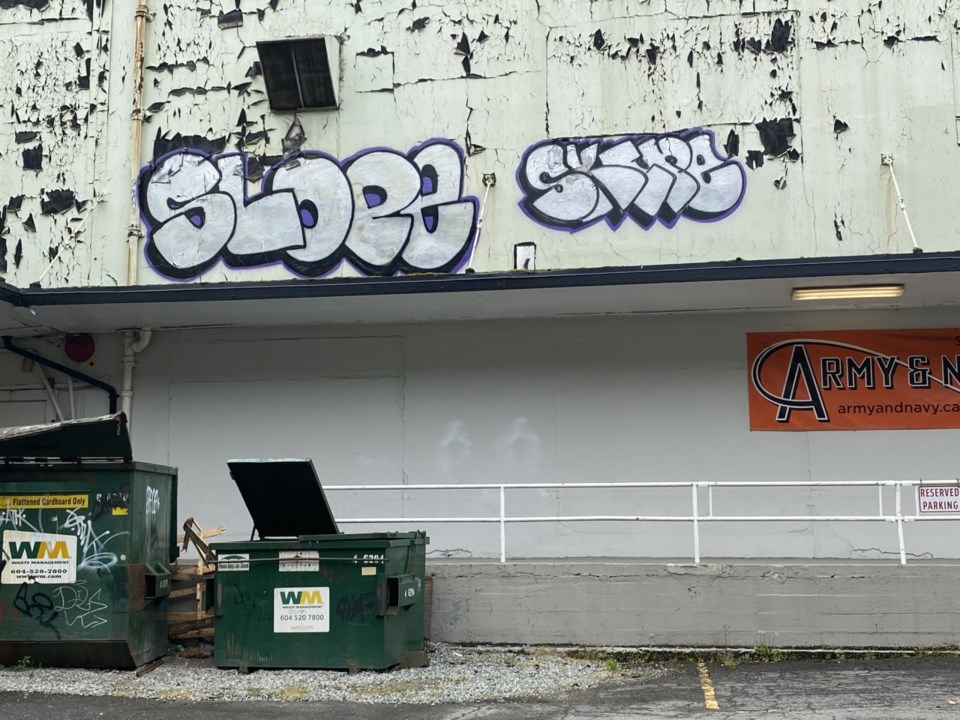If you’re noticing an uptick in graffiti in New West since the COVID-19 pandemic took hold in March, you’re not alone.
Coun. Chuck Puchmayr said he’s noticed an “outbreak of graffiti” in New West since the crisis began in mid-March.
“It tells me the fact that there are some isolated, quiet streets is an opportunity for some people to engage in that,” he said. “It has taken years to get to where we have virtually had a control on the graffiti issue. It is important that that is taken care of quickly. We have always found that the longer it takes to eliminate it, the bolder those that want to be taggers get.”
Kim Deighton, the city’s manager of licensing and integrated services, said the bylaw officers in integrated services normally do enforcement of graffiti, but they’ve been fully engulfed in COVID-related issues, such as taking complaints, working the compliance hotline and getting COVID complaints officers up and running.
“As a result, the graffiti has gone down in terms of priority down the priority list – COVID being health and safety, and graffiti not health and safety,” she told council. “The other complexity, I guess, is getting businesses to clear the graffiti which would be an expense to them, in a time when they are probably under a lot of financial strain. We have definitely noticed the proliferation of graffiti. It’s definitely on the rise.”
Puchmayr, a longtime champion of anti-graffiti efforts, helped launch an anti-graffiti program in the mid-1990s, at a time when 12th Street and Sapperton commercial areas were particularly hard hit by graffiti.

“The presence of graffiti gives off an image of uncaring and that some person or persons are blatantly able to deface civic and private property unchecked. It lowers the level of comfort and feeling of safety of merchants and customers in the area,” he told the Record. “If unchecked, it emboldens others to engage in this activity. It's called the broken window syndrome; abandoned buildings with broken windows will entice a certain type of people to break more windows.”
The same concept applies to graffiti, Puchmayr said.
“Whereas taggers take some risk in producing their graffiti, it's been proven that the quicker the graffiti is remediated, the less likely it will return,” he said. “The taggers aren't able to show off their work and won't spend time and paint if they know it will be remediated quickly.”
Puchmayr believes the presence of graffiti lowers the level of comfort and feeling of safety of some merchants and customers in the area, and if left unchecked, it emboldens others to engage in this activity. He said it’s been proven that the quicker the graffiti is remediated, the less likely it will return because taggers aren't able to show off their work and they won't invest time and paint in a location that will quickly be remediated.
Puchmayr intends to take a motion to council asking that the city waive its current graffiti remediation policy during the pandemic, when many local businesses are closed and unable to provide a higher degree of vigilance, and instead deploy a graffiti-remediation crew to deal with new graffiti as quickly as possible.

In addition, Puchmayr plans to recommend the city use its public arts endowment fund to get members of the arts community to paint the plywood that’s being placed over some businesses that have closed and boarded up because of the COVID-19 pandemic.



